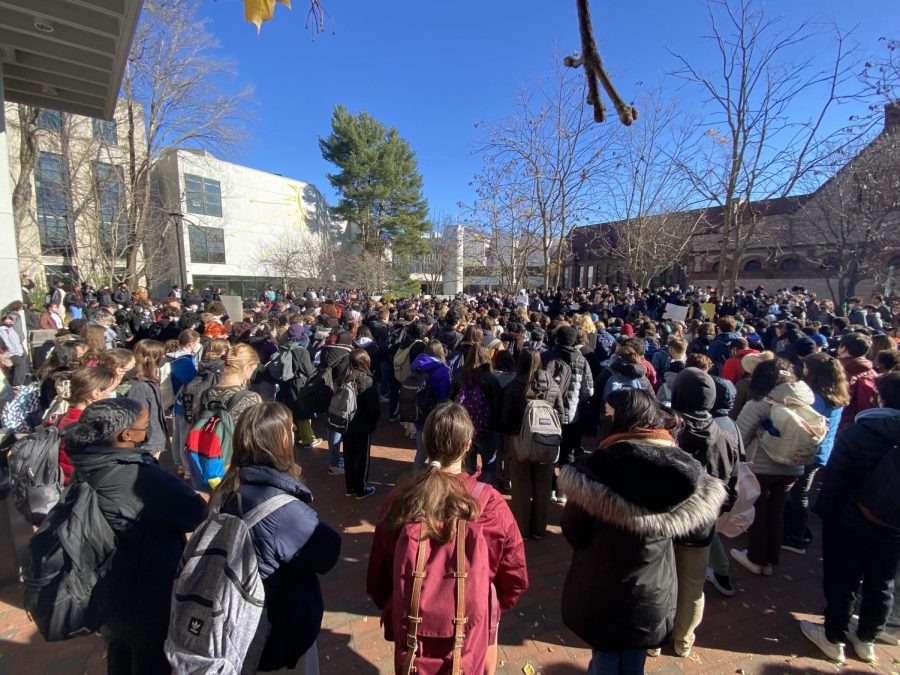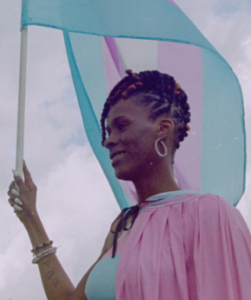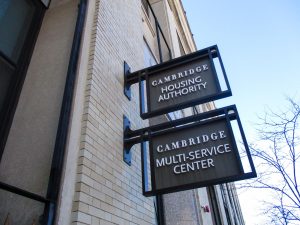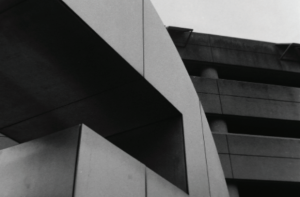Students Stage Walkout in Protest of Sexual Assault
CRLS students walk out in protest of sexual assualt and the lack of administrative response.
December 24, 2021
In response to numerous recent sexual assault allegations among the student body and a growing frustration at the lack of definitive administrative action in response, a group of CRLS students, led by seniors Lwam Mahari and Reina Stevens , organized a walkout against sexual assault on Tuesday, November 30th. Over 500 hundred students from the CRLS community gathered outside the main entrance to protest and listen to what others had to say.
The walkout began with a spoken presentation regarding sexual assault awareness, with captains of various girls and boys sports, including soccer, lacrosse, and volleyball, citing statistics concerning the demographics, frequency, and severity of all forms of sexual abuse. The captains’ initiative and leadership in this portion is significant as the walkout was originally organized to address a lack of accountability for sexual assault among members of CRLS sports teams. However, the focus became centralized around students’ personal experiences, and a demand for action from the administration.
Following the presentation, some of the organizers bravely presented their experiences with sexual assault before opening up the microphone to other victims to share their stories. An issue highlighted by several speakers at the walkout was the administration’s lack of accountability and consequences for perpetrators. Stevens expressed to the Register Forum that the “administration needs to do a better job of holding other students accountable and protecting victims of sexual assault.”
Another problem touched on by speakers was the school administration’s inability to recognize and respect those who reported incidents of sexual assault. At the walkout, Clio Bildman ’23 shared their experience of reporting sexual harrasment from a teacher to their dean. In an interview with the Register Forum, they reflected on how “I didn’t really get an answer, except an ‘oh well, he’s retiring in a couple months, and there is nothing else we can really do,’ which is obviously really unsupportive.” This experience is not unique. Bildman added, “pretty much all of my friends have had very similar experiences trying to report instances of sexual violence to the administration and it has kind of been ignored.”
Bildman is one of many students who sees a correlation between the normalization of reporting sexual assault and a toxic school culture for victims who have come forth. During the walkout, many students noticed others who were laughing and displaying disrespectful behavior. Yasmin Farah ’24 shared her frustration with the Register Forum, “seeing these guys that hurt these girls be right behind them [in the crowd], that was so disgusting.” The question that students are left with is: What needs to change, and how?
To the Register Forum, Keefer Glenshaw ’22 described his thoughts on how a change needs to occur within the school as a whole: “We can lead the change and ‘be the change’ within the culture.” He continued that change will not happen with action just by the administration, stating, “we must work together to set into motion actual change at CRLS related to a culture of unheard stories, disbelief, and unrecognized harm.” He added that “we have created an impact on the school and ourselves in this walk-out; it’s time to take Rindge and Latin to its core ideals” of opportunity, diversity, and respect.
Mahari reflected to the Register Forum on some of the changes she hopes to see, expressing that “[CRLS needs] a better reporting system because I have heard from a lot of students that they don’t feel comfortable going to staff here it either ends up going back to their families when they don’t want it to, or they find out that nothing has been done.” Mahari also added that more supportive teachers are critical to progress because they often “don’t know how to speak up because of their positions.” She believes that staff at CRLS “shouldn’t be penalized for caring about students; that is who[m] [the staff] are working for.”
This piece also appears in the December 2021 print edition.










